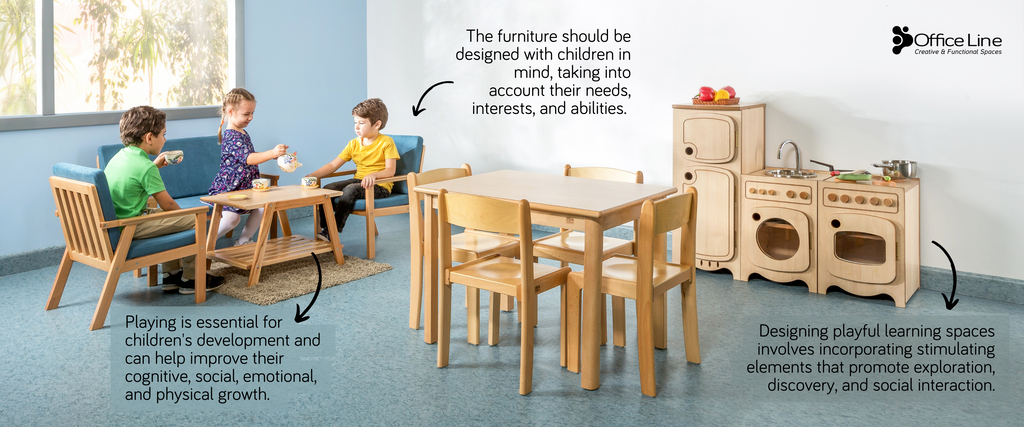The Power of Playful Spaces in Child Development
Play is often perceived as merely a fun activity for children, but it goes far beyond that. In fact, play is a crucial part of a child's development, offering numerous benefits for their cognitive, social, emotional, and physical growth. Designing early learning spaces that promotes a playful and stimulating environment is essential for nurturing this development.
To support children's development, early learning furniture should be designed with their needs, interests, and abilities in mind. Playful furniture should be colorful, inviting, and stimulating, yet also safe and durable enough to withstand daily use. The key principles of designing playful early learning furniture include creating a stimulating environment, encouraging exploration and discovery, and promoting social interaction. Furniture should be designed to inspire children to explore and experiment with the world around them and interact with their peers.
Examples of playful early learning furniture include vibrant tables and chairs, interactive wall panels, and multi-functional elements that encourage children to use their imagination and creativity. In addition to meeting safety standards, early learning furniture should be tested for stability and durability. Moreover, it should be easy to clean and maintain, ensuring that it remains hygienic and safe for children to use.

Benefits of Playful Learning Spaces
By designing learning environments that promote play, exploration, and interaction, we can significantly enhance a child's learning experience, equipping them with the essential skills and abilities needed for a successful and well-rounded future.
Here are some of the main benefits for students:
-
Cognitive Development: Play offers children the opportunity to learn new concepts, develop reasoning and thinking skills, and explore their curiosity. It helps build problem-solving abilities and encourages them to think creatively. Through play, children can learn about cause and effect, develop spatial awareness, and understand mathematical concepts.
-
Social Development: Play enables children to interact with others, develop social skills, and learn how to work together in groups. Through play, children can learn about sharing, taking turns, and cooperating with others. It helps to develop empathy, kindness, and understanding, while also teaching them how to express themselves and communicate their ideas and feelings to others.
-
Emotional Development: Play assists children in understanding and managing their emotions, developing empathy, and building self-esteem. Children can learn how to express themselves and their emotions in a safe and healthy way. Play also helps them develop resilience and coping skills, which are essential for their mental well-being.
-
Physical Development: Play aids children in developing gross motor skills, fine motor skills, and coordination. It encourages them to be active and move their bodies, which is essential for their physical development. Through play, children can learn about balance, spatial awareness, and coordination.

Designing captivating and educational early learning spaces plays a crucial role in nurturing children's development through play. By creating environments that encourage exploration, discovery, and social interaction, we can foster a love for learning and support the development of essential life skills.
At Office Line, we are dedicated to crafting innovative and engaging early learning furniture that not only supports child development but also inspires curiosity and creativity. Join us in our mission to create enriching learning spaces that empower children and contribute to a brighter and more fulfilling future for the next generation.
- Karen Rodriguez






